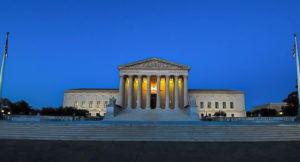 In a significant legal decision, the Supreme Court just ruled against the use of race as a determining factor in college admissions, effectively ending the practice of affirmative action in such decisions. This move overturned past rulings that date back 45 years, with significant implications for higher education institutions such as Harvard and the University of North Carolina at Chapel Hill, which now must reformulate their admission practices.
In a significant legal decision, the Supreme Court just ruled against the use of race as a determining factor in college admissions, effectively ending the practice of affirmative action in such decisions. This move overturned past rulings that date back 45 years, with significant implications for higher education institutions such as Harvard and the University of North Carolina at Chapel Hill, which now must reformulate their admission practices.
The University of North Carolina at Chapel Hill, a premier public research university founded in 1795, is particularly affected. As one of the oldest public universities in the United States, it has used affirmative action policies as a means of promoting diversity in its student body. Data from the 2021-2022 academic year show that the university serves a total undergraduate enrollment of around 19,500 students, with a significant proportion of them being students of color.
After the ruling was passed down yesterday, Governor Cooper quickly issued a statement in opposition:
Gov. Cooper Statement on Supreme Court’s ruling in UNC admissions case pic.twitter.com/e5bcSthgZL
— Governor Roy Cooper (@NC_Governor) June 29, 2023
Chief Justice John Roberts, presiding over the Supreme Court’s conservative majority, argued against associating individual identity primarily with race. His perspective asserts that this belief fails to acknowledge the range of individual experiences, abilities, and accomplishments.
In stark contrast, President Joe Biden expressed vehement disagreement with the ruling. He encouraged universities to explore alternative approaches to fostering diversity and prevent the ruling from becoming a final barrier to this endeavor.
The ruling exposed both political and racial divides within the court. The three justices of color on the bench each penned their own distinct viewpoints on race in America and the potential implications of the decision. Justice Clarence Thomas, the second Black justice in the nation’s history, has long advocated for the end of affirmative action. He labeled the universities’ admissions policies as ill-defined, race-based preferences intended to maintain a specific racial balance in their incoming classes.
Justice Sonia Sotomayor, the court’s first Latina member, dissented, viewing the decision as a significant step backward that undoes decades of legal precedents and significant progress in racial equality and diversity.
What do you think about the decision?


